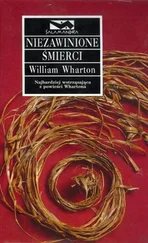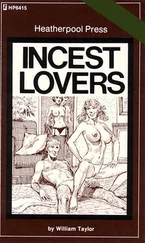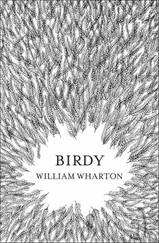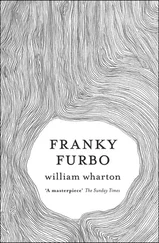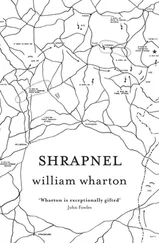1 ...6 7 8 10 11 12 ...17 After we’re finished with the escalope, she brings on fruit and cheese. Again, everything is perfect. How will I ever go back to my Mulligan stew again?
Finally, there’s coffee, and she goes to another tall cupboard, climbs on a small stool, and pulls down a dusty bottle. She wipes it off, then puts it in the center of the table.
The coffee, of course, is outstanding. We sip at it. She looks, if she can look, over the edge of her cup at me.
‘Tell me, monsieur. Is there really a pear inside that bottle?’
It’s one of those fancy bottles of Poire William. It looks as if it might be the original bottle, it’s so dusty, faded.
‘Yes, there’s a pear inside.’
‘It is the last thing my father sent home to us before he was killed. My sister, Rolande, insisted we never drink it, that we keep it there, locked in the closet, in honor of his memory.’
‘That was very thoughtful of her.’
‘Monsieur, I should like to drink from this bottle with you today. It has been too long; it is time.’
It’s her decision. I really enjoy this particular liqueur, one can actually taste the gritty, pithy quality of the pear when it is properly aged, and this liqueur is certainly aged, in fact, I think it has even evaporated a bit.
‘That would be very kind, mademoiselle. But are you sure you want to drink it after all these years?’
‘Yes, I am quite positive.’
She looks at me with those clear, sightless eyes again.
‘Do you know how the pear gets into the bottle, monsieur?’
I’d never really thought about it. I know one can soak an egg in vinegar and then, when it’s soft, slide it through the neck of a bottle, where it will harden, but I’ve never tried it. I guess I just wasn’t curious enough. I don’t imagine one could do that with a pear, anyway.
‘No, mademoiselle, I have no idea. It is interesting to think about, isn’t it.’
‘I know how it is done. They wait until the blossom on the pear tree has been fertilized by the bee, then they place that blossom inside the bottle and tie the bottle to the tree. The pear is born, grows inside the bottle.
‘When it is grown, they cut the stem of the pear, take the bottle from the tree, then pour liquor made from other pears on top. They close it up tight with the cork, and the pear remains in the bottle. It can never come out. Is it not a lovely idea, even though it is so sad?’
She stands and goes deftly over to a drawer. She pulls out a tire-bouchon, a corkscrew, and hands it to me.
‘Would you be so kind, monsieur, as to open the bottle, and we shall drink this liqueur which has been waiting inside with this pear for over fifty years just for us today.’
While I center the corkscrew and twist it in, she goes to the cupboard and comes back with two small glasses. They are etched on the sides with tiny cupids frisking in an encirclement of leaves. She watches, or appears to watch, as I pull the cork. I sniff and there is an aroma through the room. I hand the bottle across to the old lady.
‘Please, would you pour, mademoiselle? I know the man is supposed to do it, but this is such a special occasion, a private celebration, it seems only right you should be the one.’
She takes the bottle from me. Her hand is steady. As she pours into each glass she has the tip of her thumb just inside the rim of the glass and, as the liqueur reaches it, she stops pouring. It’s something I wouldn’t’ve thought of. I guess, if I were blind, I would. We all have so many blindnesses.
When she finishes pouring, she carefully puts down the bottle. She holds her glass up to me and looks across into my eyes.
‘Please, before we drink, would you tell me your name, monsieur. I do not want to be impolite, but it seems proper that when we share this we should know at least that much about each other.’
That’s natural enough. But I don’t think anyone has asked me my name in almost a year. I’d almost forgotten I have one.
‘I’ve been called Jack most of my life, mademoiselle. My real name is John, spelled J-O-H-N in English. But this past year I’ve been calling myself Jean, J-E-A-N, the French way. It sounds better to me.’
‘I like your American name, Jack; like the English villain Jack the Ripper. But may I call you Jacques in the French style? I know it means James in English, but I’d like to call you Jacques.’
She doesn’t ask my last name, but I would have told her, for whatever it meant.
‘And may I ask your name before we drink this delicious liqueur, this fateful beverage?’
‘Call me Mirabelle, please, Jacques.’
‘But that seems so impolite, mademoiselle, I mean, Mirabelle. What is your family name?’
‘That does not matter. I shall call you Jacques and you call me Mirabelle. You know, Jacques, there is no one left on this earth who calls me Mirabelle. My sister was the last one, and she has been dead for fifteen years. I do not want Mirabelle, the idea of Mirabelle, to die. Please, Jacques, call me by the name of my childhood, Mirabelle.’
There are tears in her eyes again. We touch glasses, they clink with the sound of true crystal. I know I’m expected to say something.
‘To the two of us, Mirabelle and Jacques, on this wonderful day, drinking to the dreams of our past.’
‘And to the dreams of our future.’
She drinks and I drink with her. It is absolutely incredible. Never have I tasted a liquid so filled with nectar. It is as if the pears have been compacted, distilled, heightened in flavor until only the essence is left. We both sip, close our eyes, let the warmth flow through us, then, simultaneously, open our eyes and smile. It can only be coincidence. She could not match my smile and I know I am not consciously trying to match hers. She holds the glass against her breast.
‘It is as if my father lives again. I can almost feel, hear him. Thank you so much, Jacques for this wonderful moment.’
We drink the rest of our glasses and I ease the cork back into the bottle. Each sip was like the first, an experience into another world.
‘Jacques, I shall drink the rest of that bottle with no one but you. Is it too much if I ask you to déjeuner with me tomorrow?’
I’m slow to answer. One part of me doesn’t want to get involved with anyone, even if it is only an old, blind lady. But another part does want to share time with her. I’m feeling ice clots breaking up inside me.
‘Yes, Mirabelle, and thank you. But you must pass the test first.’
She leans forward, obviously puzzled.
‘Tomorrow you must tell me the color and markings of each bird when it comes to you. Show me what you have learned today.’
Mirabelle smiles, the most spontaneous smile yet.
‘I have learned much, Jacques. You shall be surprised.’
Soon after, I rise, ease myself toward the door, pick up my painting box in the hall, and leave. Mirabelle ‘sees’ me to the door. She’s refused my offer to help her clear the table, help with the dishes.
‘No, Jacques, I want this time to myself so I can savor the pleasure of our meal. Also, it would be wrong for you to stay in here on this beautiful day, when you have your painting to finish. Goodbye for now. All revoir.’
On the way down the stairs I start smiling about my new name, Jacques. I’m not even sure I can spell it. I know the way Mirabelle pronounces it, it sounds a bit like Jock in English. I never thought I’d ever be a ‘jock.’
There are about two hours of good painting time left. I have some trouble handling the street in the foreground and the bottom right-hand corner. I think of putting in a bus at the bus stop, but that’s against my idea of what I’m trying to paint. I don’t want to put in any cars either. What I’m trying to paint is a Paris that transcends time somehow, a Paris which will always seem to be; yet, in another way, never was. I don’t put in TV antennae, automobiles, or motorcycles, not even bicycles. When I paint in people I make them vague so there’s no problem with dated clothes.
Читать дальше

